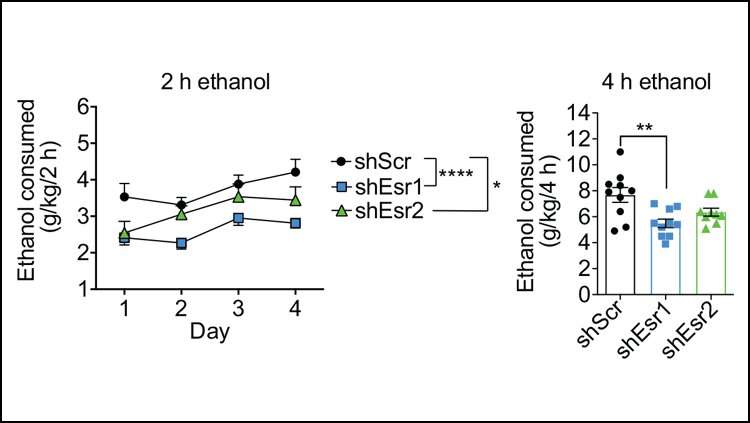
Fluctuating estrogen levels may make alcohol more rewarding to female mice, according to new research in JNeurosci. Untangling the involved signaling pathways could unveil sex-based treatments for alcohol use disorders.
Recreational use of alcohol can escalate into something more dire such as excessive binge drinking or even an alcohol use disorder. Women are more susceptible than men to these negative effects of alcohol, potentially because of the sex hormone estrogen.
Vandegrift et al. activated estrogen receptors in mice and tracked how the activation influenced alcohol’s effects on the brain. The research team targeted two subtypes of estrogen receptors in the ventral tegmental area (VTA), a brain region involved in drug reward and reinforcement.
Activating the α estrogen receptor subtype caused neurons to fire even more than normal in response to alcohol. Increased neuron firing releases more dopamine and could translate to a greater feeling of reward when drinking, making abuse more likely when estrogen levels rise.
The scientists then reduced the number of estrogen receptors in the VTA of both male and female mice.
Source: Read Full Article